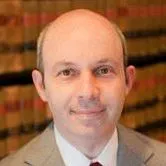Argument recap: A solidifying Confrontation Clause majority

on Dec 11, 2011 at 8:54 pm
This week, the Court heard oral argument in Williams v. Illinois, a follow-up to its decision in Bullcoming v. New Mexico and the recent line of cases dating to Crawford v. Washington more robustly applying the Confrontation Clause. As discussed in my preview of the case, Williams presents the question whether an expert’s testimony about the substance of an analyst’s report violates the Confrontation Clause if the government does not make the analyst available for confrontation.
Concurring in Bullcoming, Justice Sotomayor (who provided a critical fifth vote in that case) had reserved the question in Williams. But the tea leaves of the argument indicate Williams is going to win, either six to three or five to four. Four members of the Bullcoming majority (Justices Scalia, Ginsburg, Sotomayor, and presumably Thomas) will be joined by Justice Kennedy (who notably wrote the dissenting opinion in Bullcoming) and very likely Justice Kagan. Justices Breyer and Alito will dissent, very likely joined by the Chief Justice.
Constrained by Bullcoming, the government offered the following argument: If a government expert testifies about an out-of-court statement (including an analyst report) and that statement is admitted for the truth of the matter asserted, then the analyst must be produced for cross-examination. But if the report is not referenced for its truth, then the Confrontation Clause does not apply. An expert, the argument continues, regularly relies on innumerable out-of-court statements, and the jury is instructed not to consider those statements for their truth. (This was a bench trial, in which the same principle applies.) Indeed, Illinois law requires that result, and the Illinois Supreme Court specifically held that it applies in this case. Here, the government maintains that the state’s expert properly testified that two DNA samples matched (while referencing that one same came from a particular lab and was secured from the defendant) without the discussion of the lab report being admitted for the truth of the claim that the sample came from the defendant.
That left a majority of the Court to wonder how the expert’s testimony was relevant at all – i.e., in the absence of a foundation for the assertion that the matched DNA actually belonged to the defendant. The answer to that question was provided by Deputy Solicitor General Michael Dreeben, who argued that the link was provided by evidence of the chain of custody of the DNA sample. Dreeben noted that the state might well have a weak case in the absence of any evidence about the validity of the testing regime, but that there was no confrontation violation. It is this argument that had the potential to pick up a fourth vote for the state (from Justice Kagan, who explored this issue with Williams’s lawyers), but seemingly not a fifth.
The state has no apparent path to victory because Justice Kennedy’s questioning indicated his firm conviction that the outcome of the case is dictated by Bullcoming and Melendez-Diaz v. Massachusetts. In the view of Justice Kennedy, as a practical matter, Williams is a materially weaker case for the government because at least in those two prior cases the state had put on some evidence to establish the validity of the testing procedures that had been used.
Two aspects of the Williams decision will be critical to the decision’s implementation; the Court may leave one or both unresolved. First, when will it be sufficiently clear that an expert’s testimony about the materials on which she relied is not being admitted for their truth, such that the Confrontation Clause does not apply? Even Confrontation Clause stalwart Justice Scalia readily acknowledged that an expert may be asked to hypothetically assume the results of an analyst report, an approach that was not taken by the state in this case. How far the state must go will be a recurring issue.
Second, when the expert relies on a lab report, and that report was prepared by multiple analysts, how many of those analysts must testify, and which ones? This was a pragmatic theme of Justice Alito’s questioning, on which the state did not pick up in its argument. Justice Scalia indicated (taking on his occasional role of arguing the case for the defendant) that only one would be required, and Justice Alito wondered why that would be true. No clear answer developed at argument. That will be an important practical implication of the Court’s eventual decision.


